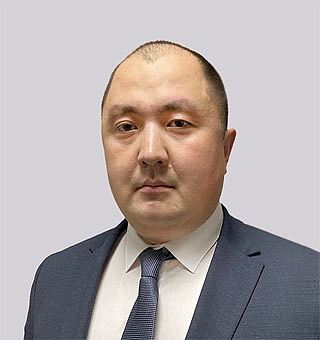Comparing the protection of selection achievements in Russia, Ukraine, and Kazakhstan
4 April 2024Organic farming is a rising issue amid the most promising strategies for a safe and healthy life. Farming itself is the most natural human activity, the foundation of human civilization, something that brought dissipated and wild pre-humans into the first urban-type formations and supplied them with food resources that eliminated hunger, lowered dependency on the forces of nature, and resulted in a burst of various cultural developments. Organic farming is closely associated with and even dependent on selection achievements (SA) – perhaps, the oldest intellectual property rights that belong to human creativity. Despite tremendous developments in modern technologies belonging to the inanimate world, SA are in no way lost or lower in importance, at least because economies of countries with large territories always comprise a large share of farming products, optimized by the ongoing investments in science to apply selection methods. SA enjoy protection in Russia, Ukraine, and Kazakhstan. In this article, we discuss and compare the main aspects of the protection of SA in these countries.
Russia
n Russia, plant varieties and animal breeds can be protected as SA. The protection of SA is regulated by part 4 of the Civil Code of the Russian Federation No 230-FZ of December 18, 2006 (CC RF), the Federal Law No. 454-FZ “On the Seed Industry” of December 30, 2021, and Federal Law No. 123-FZ “On Pedigree Stock Breeding” of August 03, 1995, and related rules and regulations.
The exclusive right to an SA is recognized based on a selection achievement patent (Article 1409 of CC RF). In order to protect exclusive rights to an SA, the originator/breeder or its assignee/successor may file a patent application with the State Commission of the Russian Federation for Selection Achievements Test and Protection of the Ministry of Agriculture (the State Commission). The patents are granted only to those SA that meet the criteria of novelty, distinctiveness, uniformity, and stability (DUS).
An SA shall be considered new if the seeds of a plant variety or animal breeding material have not been sold or otherwise transferred by the breeder, their successors, or under their consent to the third parties prior to one year in the territory of Russia and prior to four years outside of Russia before the patent application filing date (six years for grape, decorative, or fruit tree varieties, or forest tree breeds).
The State Commission then conducts an examination of the novelty of the SA and the DUS tests, and may also use and assess the DUS test results based on the data provided by the applicant or a competent authority of a UPOV state member. If all criteria are met, the SA shall be included in the State Register of Protected Selection Achievements and the applicant shall be granted a patent.
The patent certifies the priority of the SA, authorship, and exclusive rights to the SA.
The exclusive rights to use an SA can be licensed by the patent holder to third parties. In the license agreement, it is necessary to indicate the SA with its patent number, type of license, (exclusive/non-exclusive), allowed ways of use of the SA, territory for which the license is granted, term of the agreement, whether the right to sublicense is granted and whether the unilateral termination is allowed, and compensation amount. If the license is royalty-free, it should be directly indicated in the agreement.
A grant of rights under a license agreement is subject to obligatory registration with the State Commission. In order to register the license agreement, it is necessary to file a corresponding application accompanied by one of the following documents signed by the parties: the agreement itself, an extract from the agreement certified by a notary public, or a notification of license.
However, in some cases obtaining a patent or a license for an SA may not be sufficient for effective use of the SA in Russia. For example, in order to market some plant varieties in the territory of Russia, it is necessary to include them in the State Register of the Varieties and Hybrids of the Agricultural Plants (the Register) as stipulated by non the Law “On the Seed Industry” (Article 16, paragraph 2). The list of such plant varieties is adopted by the Government of the Russian Federation. To be included in the Register, a plant variety has to pass a value for cultivation and use test (VCU test). The State Commission handles similar registrations for animal breeds, too.
It should be noted that for the effective protection of exclusive rights to the SA, it is necessary not only to obtain a patent, but also to be able to enforce such rights against potential infringers.
Under Article 1446 of the CC RF, infringement of the exclusive rights to an SA includes, among others:
- Unauthorized use of an SA;
- Assigning a name to produce and/or sell seeds or breeding material that differs from the name of the corresponding registered SA;
- Assigning the name of the corresponding registered SA to produce and/or sell seeds and breeding material, if they are not of this SA;
- Assigning a name to the produced and/or selling seeds and breeding material that are confusingly similar to the name of the registered SA.
As in any case of infringement of exclusive rights, the initial step for enforcement is approaching the infringer of an SA with a cease and desist letter requesting acknowledgment of the owner’s rights and the termination of infringing activities and/or payment of damages or compensation. This step is usually rather effective as the parties are eager to negotiate. However, in case such a letter does not bring the expected effect, court action is the next option.
In court, the patent holder may request that the infringer acknowledges the owner’s rights, ceases the unauthorized use of the SA and/or pays damages or compensation. It is also possible to request that the court seize the subject of the infringement and publish the court decision.
In addition, it should be noted that, currently, new legislation and rules regulating SA are being introduced in Russia aimed at the substitution of imports for some varieties. For instance, recently, measures related to the localization of the production of seeds in Russia and import limitations for the most significant agricultural crops have been adopted.
Considering the above, it is recommended that SA owners aiming to enter the Russian market keep an eye on the constantly changing rules and regulations.
Ukraine
Ukraine is a member of two major treaty systems that set out comprehensive rules for their members regarding IPRs over plant varieties: the International Convention for the Protection of New Varieties of Plants (UPOV) (1991 Act) and TRIPs Agreement each requiring protection of new plant varieties via patent rights. Ukraine approximates its legislation to European laws including the Plant Breeders’ Rights (PBR). Therefore, the Laws of Ukraine “On Protection of Rights to Plant Varieties” and “On Seeds and Seedlings” were significantly revised in 2023.
Registration requirements are novelty, distinctness, uniformity, and stability (DUS). The variety’s denomination must be eligible to be adopted. The application is accepted or rejected based on formal criteria within 20 days and then, after substantive examination (DUS test), a PBR patent is granted. The DUS test (field trial) of UPOV country members can be accepted by the registration authorities. The term of patent protection is 25 years, except for vine, woody, and bush, which are protected for 30 years, with an option to extend such protection for up to five years.
Patents provide holders with exclusive rights in propagating material like production or reproduction, conditioning for the purposes of propagation, offering for sale, selling or other marketing, exporting, importing, or stocking for any of these purposes. Patent holders gain financial benefits from licensing and royalties, payments for the use of farm-saved seeds (FSS). The law provides for some exceptions and limitations, like private, noncommercial, and research exceptions; FSS recognizes an explicit farmers’ privilege, but one that is limited in scope.
Temporary protection is ensured from the date of application until the PBR is granted. Sensitive data defined by the breeder as confidential, e.g., breeding schemes, is safeguarded. Unauthorized access to breeding material leads to penalties.
One key novelty in the law is the allowance for listing plant varieties duly registered in the EU and/or US without field trials. The plant variety shall be put into the National List of Varieties in 15 days upon successful acceptance of the application, without substantive examination proceedings. The revised law also provides for a new option for market release for non-registered vegetable varieties following the application accepted by the authorities, which is one more step towards EU PBR system alignment.
The rightsholder and related joint owners may bring administrative or judicial action in case of PVR infringement, and an applicant may appeal to the court against any action (inaction) of the competent body related to the PBR obtained.
Claims regarding, e.g., cessation of actions that infringe or threaten to infringe on rights and pecuniary penalties may be filed to civil or commercial courts.
The court may decide on such issues in one of the following ways: compensation for non-pecuniary damage determined by the court and compensation for the amount of damages; or recovery of income obtained due to the infringement; or recovery of compensation determined by the court. The court may also impose a fine on the infringer that is paid to the State Budget of Ukraine.
Criminal actions can be taken for illegal use of protected plant variety, authorship misappropriation, or other willful infringement of the IP rights where severe damage has been inflicted. The penalties are fines, correctional labor, prison (up to six years), confiscation, and destruction of products, and equipment.
Kazakhstan
In Kazakhstan, a new plant variety or a new breed of animal is recognized as an SA. The protection of SA is regulated by Chapter 53 of the Civil Code of the Republic of Kazakhstan (Special Part) (CC RK), Law of the RK “On the Protection of Selection Achievements” (Law), LRK “On Seed Production” and the LRK “On Livestock Breeding” and related rules.
The right to SA is protected subject to the grant of a patent for SA.
An application for a patent for SA is submitted to the RSE “National Institute of Intellectual Property” of the Ministry of Justice (NIIP) and after a preliminary examination, the application materials are sent to the state commissions under the Ministry of Agriculture (for test and approbation of breeds/variety test of crops), which verify the correctness of the proposed name of SA, examination and test of SA for patentability. In order for SA to be protected, it must meet the following criteria: novelty, distinctiveness, uniformity, and stability.
A variety or breed is considered new if, on the date of filing the application, seeds, other planting material, or breeding material of this SA were not sold or transferred to other persons for the use of the variety or breed in Kazakhstan prior to one year before. On the territory of another country, prior to four years for annual crops and six years before the application date for perennial crops and breeds.
The test for distinctiveness, uniformity, and stability of the variety and breed is carried out by state commissions according to accepted methods and within the established time frame.
Upon completion of this, in accordance with SA criteria of protection, a decision is made to grant a patent.
Thus, a patent for SA certifies the exclusive right, priority, and authorship of the breeder to the patent holder to use SA.
Patent holders of SA can not only sell breeding products, seeds, and planting material, but also issue licenses for the use of SA, while receiving additional income, which is not unimportant.
The license is issued by signing a license agreement. In Kazakhstan, in addition to an exclusive and non-exclusive license, there is such a type of license as the sole license - with the licensor retaining the possibility of using SA, but without the right to issue a license to other individuals.
License agreements for the use of SA are concluded in written form and are subject to registration in the State Register of SA in the NIIP. Failure to comply with the written form and (or) the registration requirement entails the nullity of the agreement.
It should also be noted that, in addition to the patentability test, it is necessary to conduct tests for economic usefulness and include them in the registers of recommended products for the possibility of using SA in production.
It is not enough to simply obtain protection for SA, it is necessary to protect exclusive rights against potential infringers since any individual using a plant variety or animal breed in infringement of the Law is considered guilty of infringing the right of the patent holder.
Kazakhstan provides for both civil and criminal liability.
In the event of filing a claim to the court, it is possible to claim compensation from the individual who infringed the rights of the patent holder for the use of SA as well as compensation for other damages.
Currently, Kazakhstan is discussing the possibility of the country’s integration into the UPOV. Kazakhstan’s entry into the UPOV should be the next step in the development of breeding work in the country.
To access this website, we request that you read and accept the Terms of Use.












